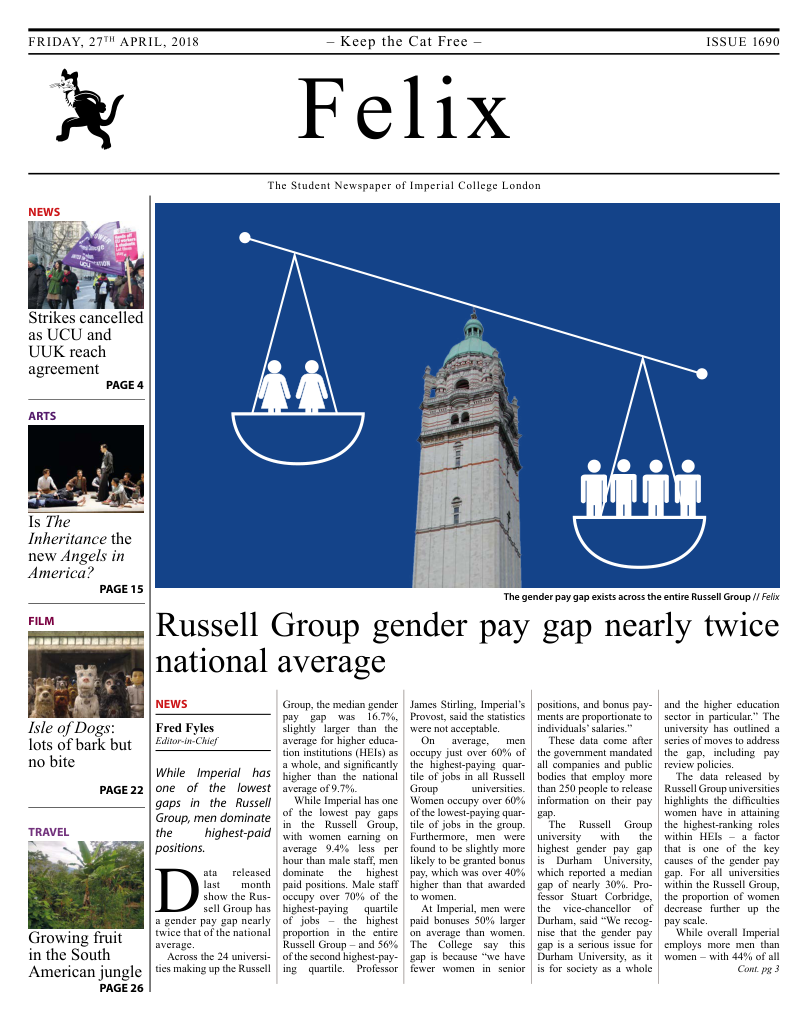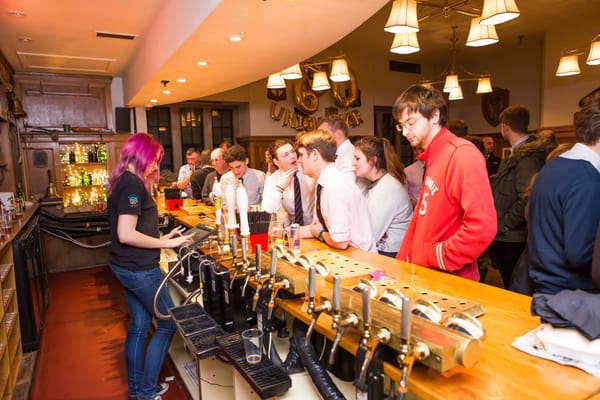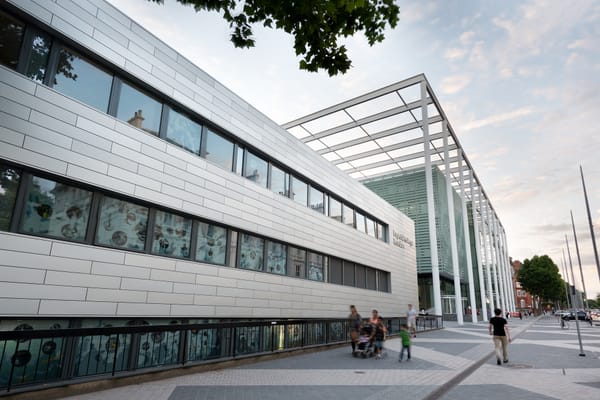Study finds higher education rife with sexual misconduct
A study organised by the NUS and the 1752 Group found widespread misconduct, particularly for postgraduates, with institutions failing to provide adequate support.

Over 40% of respondents to a survey recently carried out by the 1752 Group reported experiencing sexual misconduct by a member of higher education (HE) staff on at least one occasion.
The online survey, carried out by the National Union of Students (NUS) and the 1752 Group, which aims to end sexual misconduct in higher education, collected 1839 responses from current and former students around the UK. One in eight respondents reported being touched in an uncomfortable manner, while 65 current and former students have had non-consensual sex with a staff member. 15 respondents reported being sexually assaulted or raped by a staff member.
The survey found the perpetrators of these acts were mostly academics rather than other staff members. Around 60% of reported perpetrators were men and 13% women; these gender imbalances were also seen with victims, with women being more likely than men to experience sexual misconduct. Members of the LGBTQ+ community were more likely to have been victim of misconduct, as were postgraduates, with nearly 15% of postgraduate respondents reporting being made to take part in sexualised discussions, compared to 6% of undergraduates.
A lack of boundaries within student-staff relationships and the impact of sexual misconduct were also highlighted in the report. 80% of respondents felt staff having sexual relationships with students made them ‘somewhat’ to ‘very uncomfortable’, while 40% felt uncomfortable about getting drunk with staff members.
Misconduct has had a notable effect on victims, ranging from loss of confidence to a change in degree course or career path. Reporting of such incidents was found to be lacking, with only 10% of respondents reporting misconduct to their institution, the major reason being that victims are unsure if the behaviour was serious enough to warrant complaint.
Where incidents are reported, 90% of respondents felt institutions failed to adequately respond, with some saying institutions rendered the process difficult or even denied the incident altogether. Only one in four respondents found that their University or College took proactive steps to prevent misconduct.
Dr Emma Chapman, a research fellow at Imperial who is a member of the 1752 Group told Felix: “This research rightly placed accountability not just on the perpetrators but also on the university frameworks which protect them. Inadequate reporting pathways and opaque and discriminatory disciplinary processes keep higher education a gendered experience and prevent true equal access to education.”
Last month Felix reported on their college-wide survey investigating sexism at Imperial. It found that 40% of respondents had faced misogyny, and 70% had experienced derogatory comments from their peers. Only one in three respondents agreed that enough support was given to victims of discrimination.
Commenting on the report, the College stated: “Imperial is committed to promoting an environment where everyone feels safe, supported, and respected. Any kind of sexual assault or harassment is entirely unacceptable and has no place within our community”.
The College also added that six sexual violence liaison officers have been appointed, and that training was being provided to front line staff, Union bar staff, and hall wardens.
Professor Curry, Assistant Provost for Equality, Diversity, and Inclusion, who spoke to Felix last month, said: ”I know incidents where staff have said completely unacceptable things to female students, for example inappropriate behaviour… One of the major pieces of work we’re starting is a working group dealing with sexual harassment at the university. It will look across the board at staff and student experiences, and come up with a unified set of policies and procedures that create a credible reporting system, so that staff don’t feel there’s nowhere to go… even if it’s just an off-colour remark”.
Dr Chapman said: “Universities need to urgently invest in tackling this issue and I am happy to say that Imperial is one of the universities leading this charge with their newly convened sexual harassment policy reform working group. I hope to see courage to admit fault and commitment to invest from Imperial and the sector as a whole.”
The report comes as staff sexual misconduct comes under closer scrutiny in the world of academia, with the Guardian last month reporting many institutions had failed to carry out recommended reforms. A previous report by the NUS, entitled Hidden Marks, suggested as many as one in four female students in the UK had been sexually assaulted.
If you have been affected by anything discussed in this article, please consider phoning The Samaritans (116 123), Rape Crisis (0808 802 9999), or Survivors UK (020 3598 3898) for confidential support and advice. Students can also contact their Faculty Senior Tutors for support, or reach out to ICU’s Advice Centre, which offers independent, impartial, and confidential advice.









